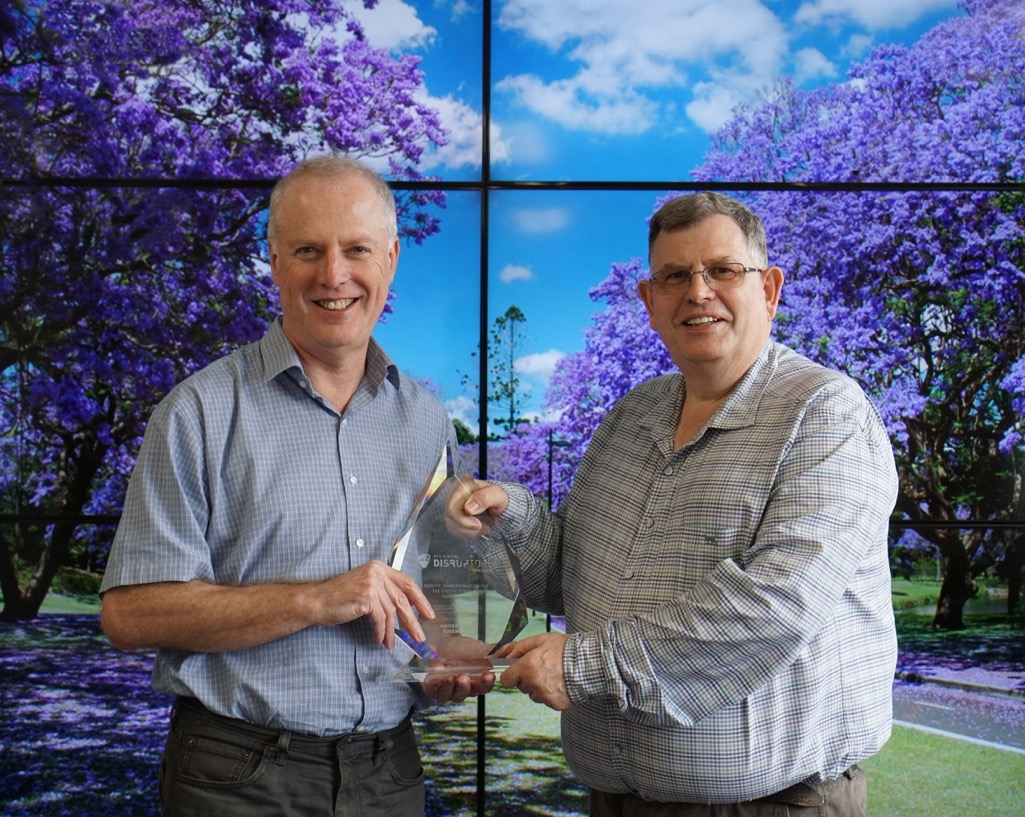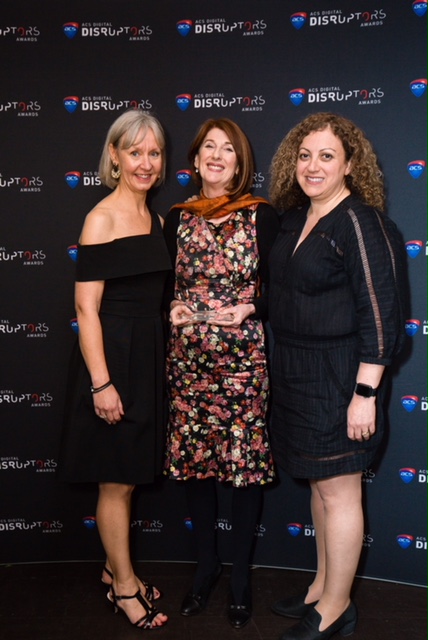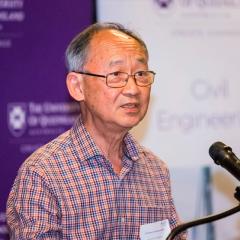UQ researchers claimed two Australian Computer Society Digital Disruptors Awards at a gala event in Sydney on Thursday 2 November 2017.
The ACS Digital Disruptors Awards focus on creative and positive disruption within the information and communications technology industry.
UQ's projects won awards for ‘Service transformation for the digital consumer’ in both the ‘government’ and ‘not for profit’ categories for, respectively, its Metropolitan Data Caching Infrastructure (MeDiCI) project and its involvement in the Impact of Humanoid Robots on Student Learning research project.
MeDiCI is a data storage fabric developed and trialled at UQ that delivers data to researchers where needed at any time. The ‘magic’ of MeDiCI is it offers the illusion of a single virtual data centre next door even when it is actually distributed over potentially very wide areas with varying network connectivity.
MeDiCI enables a range of techniques for national and international data sharing. Recent tests between UQ, the University of California, San Diego and the National Institute of Advanced Industrial Science and Technology in Japan indicated that MeDiCI can even support seamless access at very high data rates globally.
UQ’sResearch Computing Centre is leading the MeDiCI project in collaboration with UQ Library, UQ’s ITS division and UQ research groups, such as the Queensland Brain Institute, Institute for Molecular Bioscience and Centre for Advanced Imaging.
RCC Director Professor David Abramson, an Adjunct Professor in UQ’s School of Information Technology and Electrical Engineering, said the award affirms and recognises the work UQ is doing to deliver a scalable and affordable data fabric for its researchers.
“The award acknowledges that we are transforming and disrupting the way we deliver infrastructure in the government sector," said Professor Abramson.
"We are doing this with commercial off-the-shelf products, configured in a unique way, and we are able to leverage the best of commercial services such as data centres.
"This hybrid model means that it is not necessary for universities to necessarily do it all themselves,” he said.

The Humanoid Robot Project is a collaboration between UQ, Swinburne University of Technology, Queensland University of Technology, and the Association of Independent Schools of South Australia (AISSA), and it aims to understand the impact of humanoid robots on student learning.
Thomas and Pink, two Nao humanoid robots were provided for a term to selected schools as part of the project, covering a broad range of student ages from early childhood through to secondary school.
Preliminary findings indicated an increase in student engagement, self-directed learning, deep learning and a fostering of the four ‘Cs’ (creativity, collaboration, communication and critical thinking) when humanoid robots were part of learning.
Dr Marie Boden, one of the project’s chief investigators, from UQ’s School of Information Technology and Electrical Engineering, said winning an ACS Digital Disruptors Award for the project was “a wonderful surprise and encouragement to keep working on improving digital technologies’ role in Australian schools.”
“The implementation of humanoid robots has had a big impact on both students’ engagement in learning computer programming and on teachers and their understanding of teaching digital technologies,” said Dr Boden.




